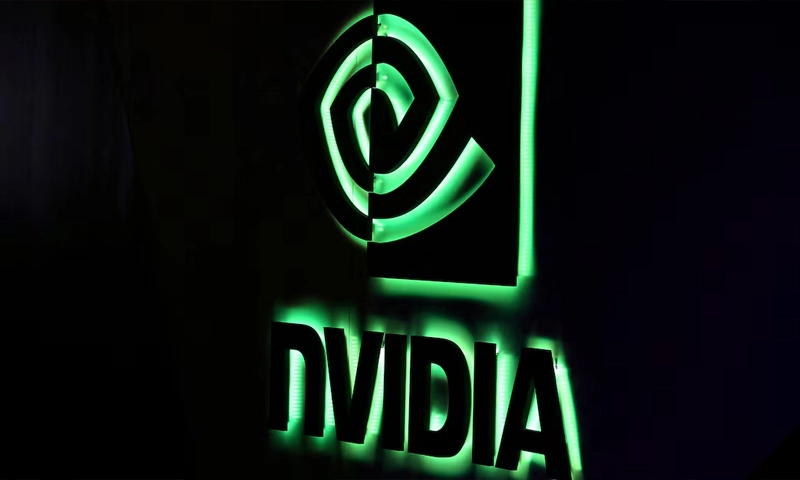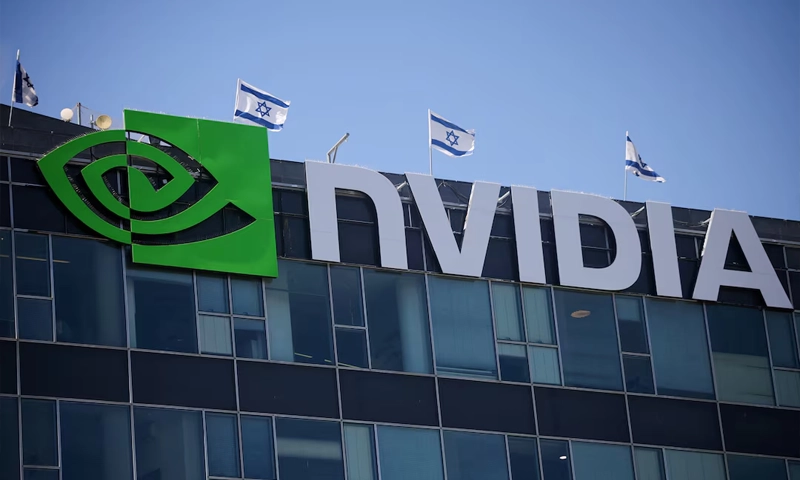- AFP
- Yesterday

China urges local firms to avoid Nvidia H20 chips over security concerns
-

- Reuters
- 3 Hours ago

BENGALURU/SHANGHA: Chinese authorities have urged local companies to avoid using Nvidia’s H20 chips, particularly for government-related purposes, Bloomberg News reported on Tuesday, a move likely to hamper the company efforts to service the key China market.
Several companies were sent official notices discouraging the use of the H20, a less-advanced chip, mainly for any government or national security-related work by state enterprises or private companies, the report said, citing people familiar with the matter.
Reuters could not immediately confirm the report.
Nvidia said on Tuesday the H20 chip was “not a military product or for government infrastructure”.
“China has ample supply of domestic chips to meet its needs. It won’t and never has relied on American chips for government operations, just like the US government would not rely on chips from China,” the statement said.
Washington last month lifted a ban on the sale of the H20 chip in China and it is now the most advanced artificial intelligence chip that Nvidia is allowed to sell there.
WHY DO YOU NEED NVIDIA CHIPS?
The move comes after reports in China’s state media of security concerns around H20 chips. Nvidia has said there are no “backdoors” that would allow remote access or control.
Read more: Xi sees China, Brazil as ‘self-reliance’ model for Global South
Beijing is pressuring China’s large tech firms such as Alibaba and ByteDance over orders of H20 chips, the
Financial Times reported on Tuesday.
The companies have been asked by the Ministry of Industry and Information Technology to explain why they need to order H20 chips instead of using domestic alternatives, the report said, citing people familiar with the matter.
Some tech companies were planning to reduce their orders as a result of the questions from regulators, the report said.
The Information reported the companies along with Tencent Holdings, have been ordered by China’s internet regulator in the past two weeks to suspend their purchases of Nvidia chips altogether, citing data security concerns with the chips.
The directive came from the Cyberspace Administration of China and was communicated at a meeting the regulator convened with over a dozen Chinese tech firms, shortly after the Trump administration reversed the export curbs on H20 chips, according to the report.
Meanwhile, the regulator told the companies that new chip purchases had to be suspended until it concluded an investigation into potential security risks from the chips, according to the report, which cited people familiar with the matter.
Alibaba, ByteDance and Tencent did not immediately respond to Reuters requests for comments.
Nvidia did not immediately respond to a request for comment on The Information’s and the Financial Times’ reports.
FIGHT FOR DOMINANCE
China is also trying to promote the use of domestically-developed technologies including AI chips made by Huawei, the Chinese rival with which Nvidia is battling for AI chip dominance.
Shares in China’s top contract chipmaker SMIC rose 5 per cent on Tuesday on expectations of rising demand for locally-produced chips.
The H20 curb also follows comments on Monday from US President Donald Trump, suggesting that he might allow Nvidia to sell a scaled-down version of its advanced Blackwell chip in China, despite deep-seated fears in Washington that Beijing could harness US AI capabilities to supercharge its military.
Read more: US clears Nvidia to resume H20 chip exports to China
China’s foreign ministry said on Tuesday it hoped the US would take practical action to maintain the stability and smooth operation of the global chip supply chain.
The Trump administration last week confirmed an unprecedented deal with Nvidia and AMD to give the US government 15 per cent of revenue from sales of some advanced chips in China.
Read more: Trump says Nvidia to give US cut of China chip sales
China’s renewed guidance on avoiding chips also affects AI accelerators from Advanced Micro Devices, the Bloomberg report said, adding that it was unclear whether any notices from Chinese authorities specifically mentioned AMD’s MI308 chip.
AMD did not respond to a request for comment outside regular business hours.





